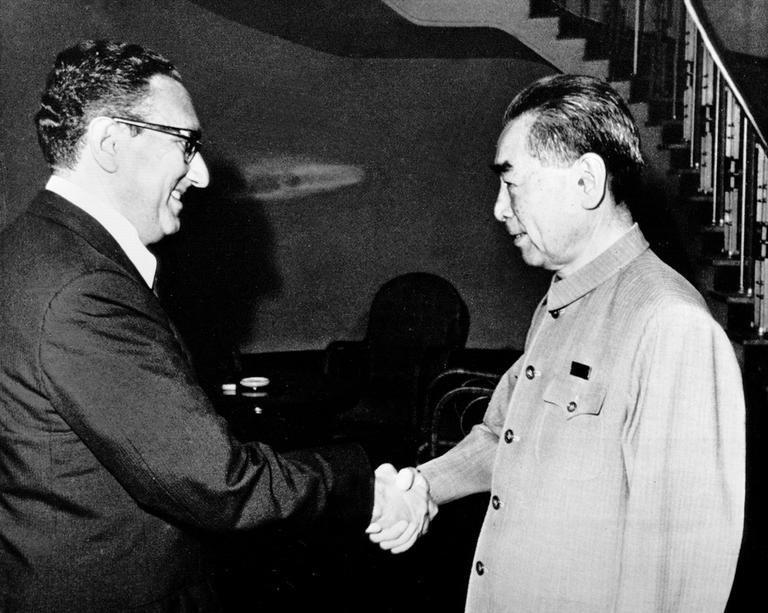Subscribe to our weekly newsletter to get it delivered straight to your inbox!
As a candidate and in press conferences as president, Richard Nixon argued for the necessity and benefits of engaging China. He felt this was essential given China's size and inevitable importance. Nixon also saw China as a useful counterbalance to the Soviet Union. In China, Mao Zedong and Zhou Enlai were thinking rapprochement with the U.S. would aid them in their own rivalry with Moscow. From the first days of his presidency, Nixon sought to signal China's leaders that he was willing to talk. The Americans sent private signals through Paris, Warsaw, and via the leaders of Romania and Pakistan. The documents summarized and linked to below detail these efforts which ultimately produced Henry Kissinger's secret trip to Beijing July 9-11, 1971. Kissinger, Nixon's National Security Advisor, flew to Beijing from Pakistan. His meetings there produced an agreement that President Nixon would visit China. He went in February 1972.
The USC U.S.-China Institute has collected many resources on the Kissinger's secret trip and President Nixon's subsequent visit:
- A timeline of events and key documents leading up to Kissinger's trip
- Documentary film Assignment: China - The Week That Changed The World (also available on our YouTube channel)
- Symposium featuring top Nixon assistants discussing his visit
- Video of when President Nixon announced he would visit China (July 15, 1971)
- Zhuang Zedong spoke about his role in "ping-pong diplomacy"




